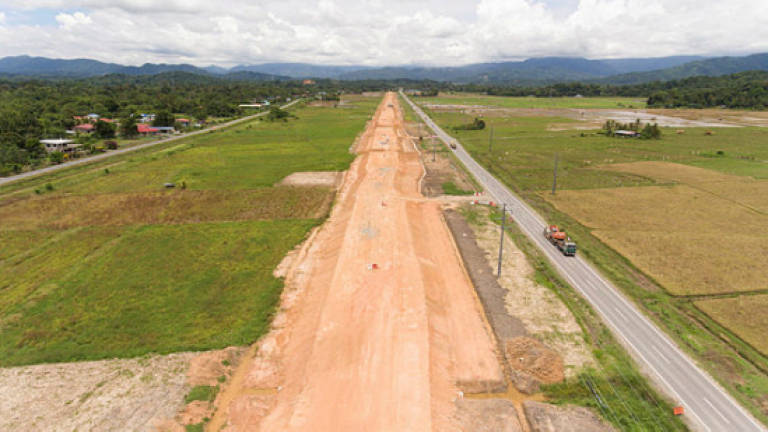Pan Borneo Expressway catalyst for Sabah's development and economic progress: Musa

KOTA KINABALU: The Sabah Pan Borneo Expressway project launched in March 2015 serves as a catalyst that will stimulate and drive the state's economic growth comprehensively, according to Sabah Chief Minister Tan Sri Musa Aman.
He said the project would also help stimulate the state's development agenda as outlined under the Hala Tuju Agenda of Sabah and the Sabah Development Corridor (SDC).
"The Pan Borneo Expressway is a pledge by the Barisan Nasional (BN) government under the leadership of Prime Minster Datuk Seri Najib Tun Razak in the 13th general election manifesto to build a highway in Sabah and Sarawak.
"Starting from the manifesto and then the planning, followed by several series of discussion and signing of agreements, today, the Sabah Pan Borneo Expressway project is being implemented according to phases and packages," he told Bernama.
According to Musa, the highway, besides strengthening the state's road networks that will facilitate the people's mobility, will also stimulate and boost other economic economic activities such as marketing of agricultural products and promoting the development of tourism products.
"It will also stimulates development and growth of economic zones, such as housing and commercial areas, creates more employment opportunities, as well as provides skills and experience for the local population," he added.
Musa said the expressway would be toll-free, hence enabling people from all walks of life to use it.
"Once again, we express our appreciation and gratitude for Prime Minister Datuk Seri Najib Tun Razak's concern for the state's development and the people's needs with the implementation of this expressway," he said.
Musa said implementation of the expressway projects involved 35 packages worth RM12.8 billion from Sindumin to Tawau, with seven packages undergoing construction since April 2016.
As of March this year, he said, five of the packages were at the stage of earthwork for building of the road alignment and bridges, while the other two packages were in the process of entering the site.
On the effectiveness of the Mini Estet Sejahtera (Mesej) or Prosperous Mini-estate programme by the Sabah government, Musa said the project was part of the government's commitment to ensure the people in the affected areas, who were identified under the poverty line, would be taken care of.
"The poverty rate shows a sharp drop from 19.2% in 2009 to 2.9% in 2016. Mesej is one of the programmes that were introduced to eradicate poverty," he said, adding that under the programme, economic activities were carried out for the poor to enable them to earn income, such as the group oil palm cultivation.
The programme, he said, proved successful in increasing the income of the poor and removing them from poverty.
Musa said thousands of people in Sabah had benefited from Mesej which was carried out in suitable areas with the cultivation of oil palm or rubber, and in the coastal areas, with an aqua-culture programme.
"We give priority to village people with no land, no house and are poor, and now they have house, land and no longer poor. So, we have succeeded in reducing the state's poverty rate," he added.
Besides, Mesej, he said, other poverty eradication programmes carried out by the state government included the Communal land Grant, Prosperous Village and PPRT Farm. — Bernama